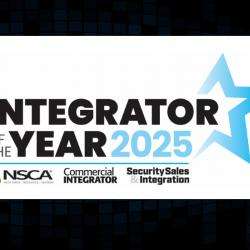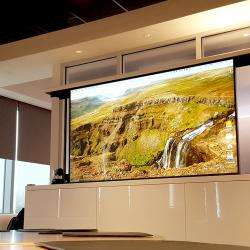How to Plan a Meaningful Experience, Not a Meeting

Original Article by Christopher Kelly on SocialTables
More than 220 million meetings are conducted in America each month.
Because I’m an entrepreneur who’s providing the fastest-growing network of meetings and conference venues in the U.S., you would think I’d be doing cartwheels and flips over this opportunity.
While this may be true, problematic meeting trends are still troubling the industry. For one, 63 percent of meetings are conducted without preplanned agendas, giving room for meetings to wander off track and become unproductive. Meanwhile, 73 percent of employees admit they do other work in meetings. That means the meeting either isn’t valuable or it isn’t engaging — and neither option is ideal. The biggest complaint participants make is that meetings are inconclusive. People often come away from meetings without feeling accomplished.
Those trends make one thing apparent: We have a meeting problem.
Defining Meaningful Experiences
At our company, we often challenge ourselves to solve a problem by “starting with the end in mind.” In the case of unproductive meetings, the end is pretty clear: to create an outcome-based experience instead of a meeting.
Our company studies the science of meetings through human-centered design, and what we’ve observed among the 200,000 meeting participants who walk through our doors each year is that there are four fundamental types of meeting outcomes:
- Generative, in which all participants should come up with ideas
- Informative, in which all participants should have applied their new knowledge or skillsets after the session has ended
- Evaluative, in which everyone comes to a decision or at least achieves key milestones toward making a decision
- Social, which we usually find integrated with one of first three meeting types, for which the purpose is to dedicate time for all participants to connect with one another outside of a primary outcome
If a meeting doesn’t achieve a primary outcome, I’d argue, it’s not really a meeting — it’s just a gathering!
Achieving Meaningful Experiences
Instead of settling for below-average meetings, planners can do a few things to ensure participants feel their time spent was meaningful beyond reaching an outcome:
1. Recruit a facilitator.
A professional facilitator, or even a meeting participant who is dedicated to ensuring that the group of participants achieves its meeting goals, is critical in streamlining all the tasks that need to happen but don’t because there’s no one assigned — responsibilities such as scribing, time-checking, and parking off-agenda items. We recently had a chance to work with Watershed Partners for facilitation, and they took our meeting experience to a whole new level.
2. Foster an environment of full participation.
Encouraging participation often means preparing ahead of time to understand more about your participants, creating a set of inclusive, open-ended questions they would not be shy answering, leveraging conferencing technologies to ensure that people who aren’t in the room but need to be involved are “there,” allowing for small-group activities to make it less classroom-like, or even bringing participants together through food shared at a proper dining table to stimulate further discussion. The more creative the environment, the more meaningful the experience will be. Partners such as Abel McCallister Designs, a company specializing in holistic meeting planning, work with our clients to create truly memorable moments within their meetings.
3. Create a space that nurtures productivity.
The last but simplest thing I’d advise is to outfit your physical space to be as conducive to achieving the meeting outcome as possible. Simple things such as big windows; green plants; reliable technology; great coffee; and easy access to whiteboards, markers, paper, and post-its go a long way toward getting projects done.
What defines a meeting’s success is its human element. Business meetings were really designed to provide a medium through which humans could work better together. If we want to craft the best experiences possible, we need to create an environment where we love the whole journey we take together, not just to be in one that checks a box.
For more insights from Chris Kelly download his latest report, featuring 12 trends shaping our industry in 2017.
Christopher Kelly is the president and co-founder of Convene, a company that integrates service, culinary, technology, and human-centered design to transform the workplace experience. Convene was named one of Forbes’ 100 most promising companies in 2014 and one of Inc.’s fastest-growing companies. In his role as president, Chris is responsible for innovation, new growth initiatives, and brand development while jointly developing company values, culture, and strategy. Follow Convene on Twitter at https://twitter.com/Convene.
Share This Article
Categories
Latest Posts

Technology That Keeps Residents Engaged, Connected, and Safe

IMS Closes Out 2025 with Major Industry Awards, Looks Ahead to 2026

Philadelphia 2026: Is Your Venue Ready for the Spotlight?

Scalable AV Infrastructure for Life Science Enterprises

Extend Your Reach: The Power of Virtual and Hybrid Events
Tags
Contact Us
- Headquarters: 3055 MCCANN FARM DRIVE, GARNET VALLEY, PA 19060
- Event Staging: 2000 COLUMBIA AVENUE, SUITE 300, LINWOOD, PA 19061
- Southeast Office: 404 SUNPORT LANE, SUITE 350, ORLANDO, FL 32809
- Phone: + 610-361-1870
- Contact Us
Services
Recent Posts

Technology That Keeps Residents Engaged, Connected, and Safe


